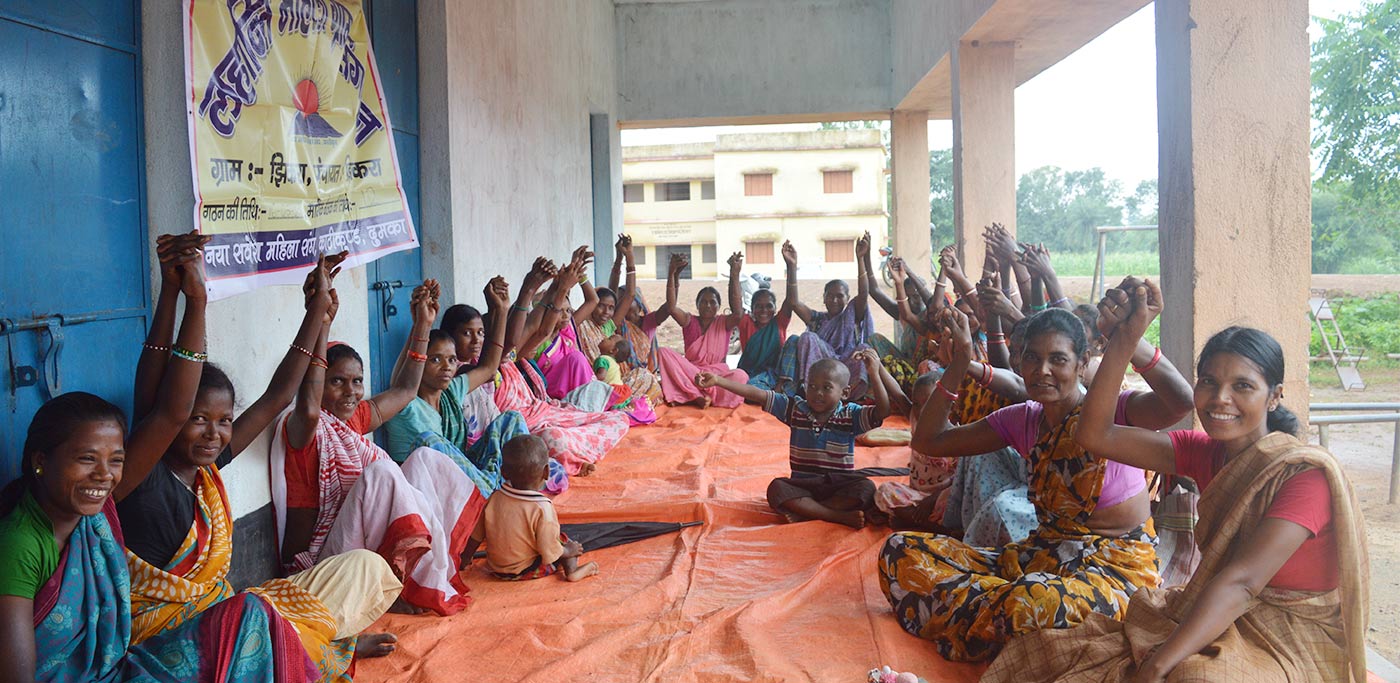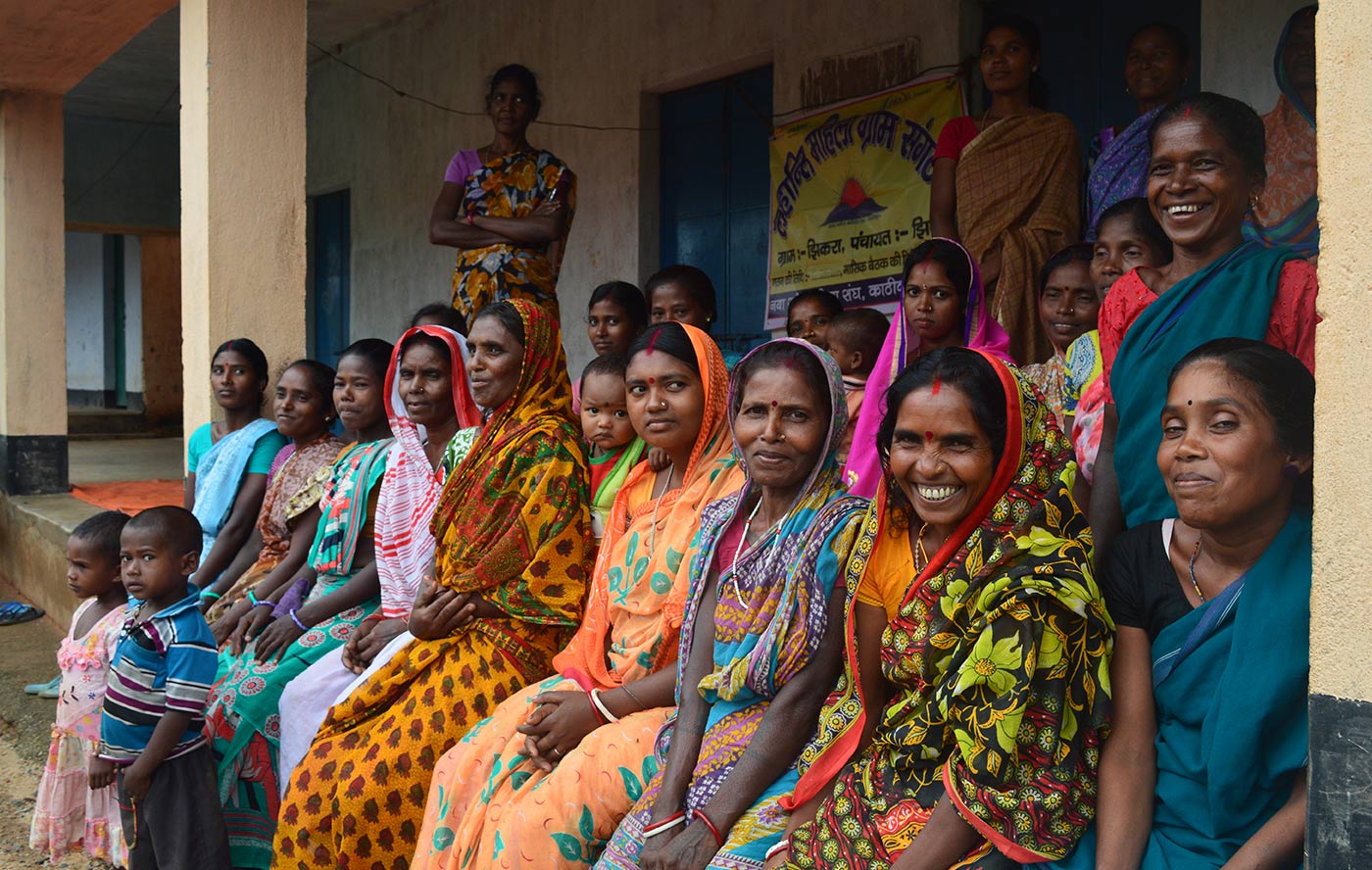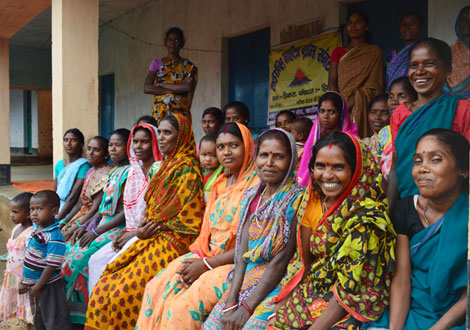After climbing a great hill, one only finds that there are many more hills to climb- Mandela

“Police force was sent and guns were pointed at them but they stood firm. It will be a long and arduous journey for the SHG women of Kathikund block as they deal with various stakeholders. But the seed of change has been sown. It is only a matter of time that their collective strength will bloom to a tree which bears fruits”
Despite India’s unprecedented economic growth, the benefits of this economic advancement have not trickled down to the poor and neediest. India is home to the largest number of poor population with more than 270 million living in extreme poverty. Malnutrition and hunger are an everyday reality for many Indians. In order to support this population, the Indian Parliament passed the Right to Food Act in 2013 which entitled subsidized food grains through Public Distribution System (PDS). However, rampant corruption and bureaucratic nexus has been a barrier to the delivery of the scheme. But in one remote block in the state of Jharkhand this was about to change. And this change was led by a group of negligibly literate but unrelenting women. This is their story of insurmountable courage and dream of hunger free homes.
In Kathikund block in Jharkhand despite constant complains about illegal high prices, lower than prescribed distribution of rice and oil and opaque distribution system in PDS shops, little had changed. Institutional corruption was the norm: with a cut of the profit at multiple levels.
PRADAN is working with 10 Self Help Groups (SHGs) in the Jhikra village in the Dumka district of Jharkhand. As part of their training on governance, PRADAN organised a two day workshop at the block (Kathikund) to train the women on their rights as citizens of India, as guaranteed to them by the constitution. PDS figured prominently in these discussions because, in many ways, it directly had a bearing on the amount of food available in their plates and the plate of their children every day. With their enhanced understanding of the Act and provisions under it after the workshop, the women now demanded their rightful entitlement at the right price. What started as a small voice in one village soon took the shape of a mass movement with women from SHGs of other villages joining in. But not a stone turned. This people’s movement then went to the streets with hundreds of women blocking the road. The authorities retaliated with equal fervor. Police forces were sent and guns were pointed at these women as trucks lined up near the blockade. But the tribal women in this far flung block in Jharkhand were adamant: it was their right and they would not back down at any cost. No amount of threat or coaxing could dampen their spirit. The road was cleared eventually but the fight went on.

A relentless struggle of 10 months ensued which included filing of application, complaint and protest with the authorities, along with vocal disapproval at the ration shops. Finally, these resilient women tasted victory. Corrupt PDS ration shop dealers were removed. The registration of two ration shops was cancelled. The system was finally limping towards some transparency. And the fire had been lit. Other SHGs in different villages took the cue and demanded transparency in institutional service delivery: be it Anganwadi Kendras, Social Security Schemes or Mid Day Meal programs in school. Institutional service delivery now features on the monthly meeting agenda of the Village Organisation (VO), which is a village level body of SHGs. The women are no longer at the mercy of the system. Nor do they give in to the whims of unscrupulous office-bearers: rather they discuss, engage, protest and look for solutions.
“Police force was sent and guns were pointed at them but they stood firm. It will be a long and arduous journey for the SHG women of Kathikund block as they deal with various stakeholders. But the seed of change has been sown. It is only a matter of time that their collective strength will bloom to a tree which bears fruits”


